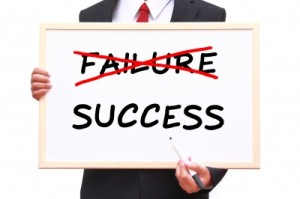 You are working in an organization and you have some innovative ideas on how to improve the products and services your organization offers your clients. You spend time writing a strategic plan on how these solutions could be implemented, saving the organization thousands of dollars. You present the plan to your VP, and she gives you approval to try something “out of the box” and implement some of the solutions you have proposed.
You are working in an organization and you have some innovative ideas on how to improve the products and services your organization offers your clients. You spend time writing a strategic plan on how these solutions could be implemented, saving the organization thousands of dollars. You present the plan to your VP, and she gives you approval to try something “out of the box” and implement some of the solutions you have proposed.
You are very excited. You start trying the new solutions and immediately notice some improvements. However, over the next few months, things don’t go according to plan. The new initiatives you thought would save money are actually costing the company thousands of dollars. The ideas you had are now officially a failure. You face the possibilities of being “shelved” within your organization and never heard from again. Or worse, the failures might be hidden and valuable lessons are lost forever.
In our global economy, many organizations would like to be more competitive and innovative. Rapid advancement in technology makes this more possible now than ever before. While many organizations have talented people, the challenge is to enable them to try new and innovative initiatives without being stopped by the fear of failure.
The fact is, great companies and people have all endured more than their fair share of failures and setbacks.
Steve Jobs dedicated his life’s work to building Apple into a $2 billion-dollar company. Then, he was asked to leave. Jobs then went on to launch his own computer company, which ended up failing. So he focused on developing an operating system that Apple ended up buying, bringing Jobs back into the Apple family. Jobs went on to lead a group of very talented people at Apple, and they created such products as the iPhone and the tablet computer, revolutionizing the way we use technology in our day-to-day lives.
In order for organizations to be competitive in a global marketplace, there must be opportunities for failure to occur and be viewed as a step towards providing great products and service.
Here are some steps you can take within your organization to allow people and teams to take risks, experience failure, learn from it, and keep moving forward to produce great products and services.
Don’t dwell on the failure
Cultures that value innovation and risk taking know that there will be plenty of failures, and they welcome failure as it provides them with a rich source of learning and growth. This fosters a culture of “failing forward”, which in the long run produces innovative products and services.
Welcome constructive criticism
Honest feedback is essential when things don’t go according to plan. This is an essential step in the process for companies that desire to be innovative and leading edge. Constructive feedback enables people to refine what they’ve done, and then keep moving forward.
Keep everyone in the game
Innovative organizations know that prudent risk-taking and failure go hand in hand, so they don’t punish people who fail when trying to be innovative and unique. In fact, failure is often even celebrated by leaders in their organization and they talk openly about what was learned, and how they will move forward in a positive direction.
Failure and setbacks are part of a high-performance culture that desires to be innovative. Failure is a natural step towards great performance.
All the best in achieving your highest performance.
Paul
Image courtesy of FreeDigitalPhotos.net